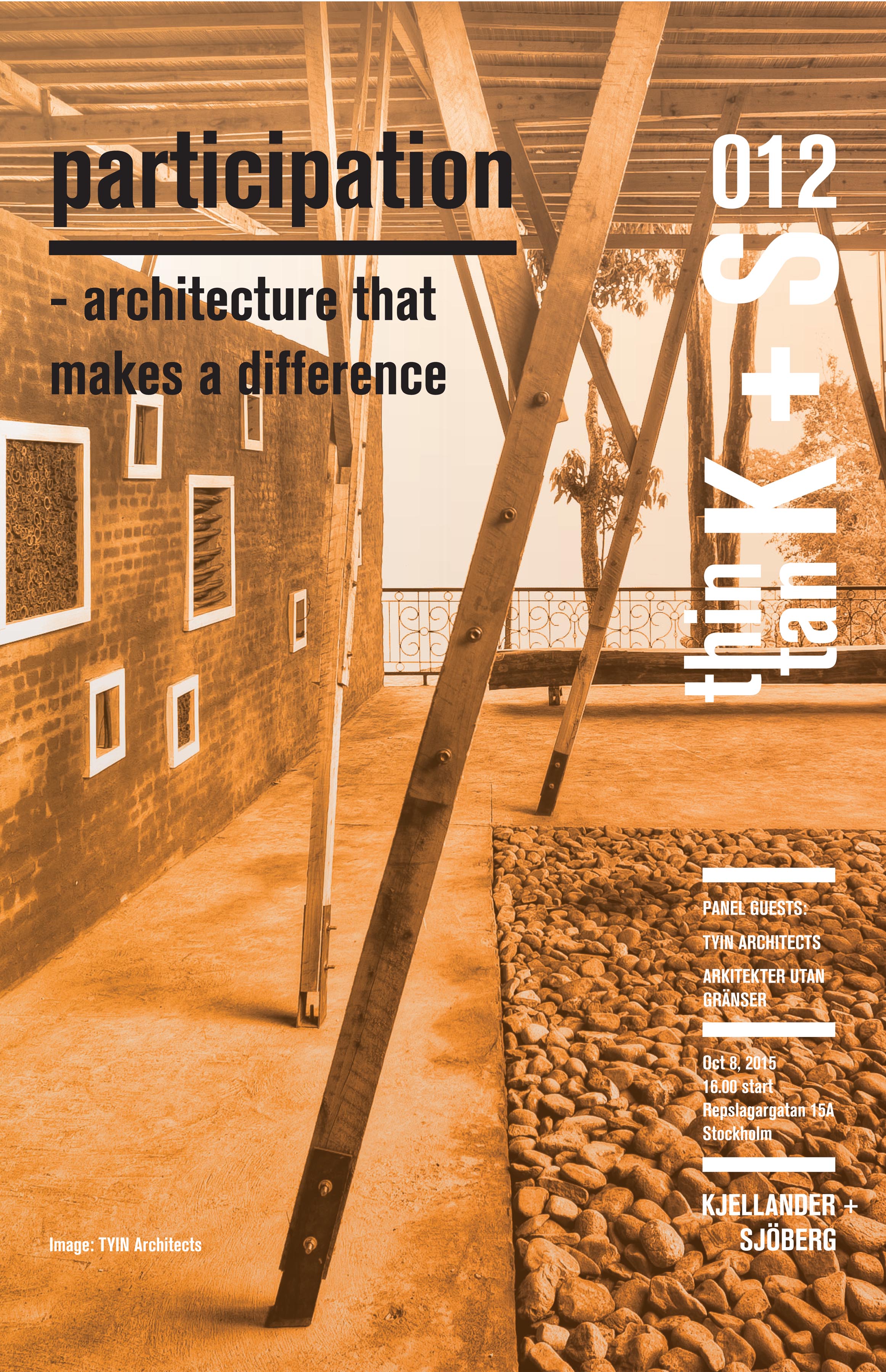
Think Tank 012
Participation – architecture that makes a difference
This Think Tank focuses on the possibilities of architecture to improve conditions and to find solutions for people and communities in need. We would like to have a closer look at architecture and urban planning as generators for long-term development and as tools in the processes shaping sustainable and adaptable environments. We will investigate the space occupied by contemporary discourse, leading to the creation of architecture which makes a difference, of exemplary cases built in challenging conditions despite difficulties and scarce resources. We are interested in finding initiatives with a sense of optimism and a can-do approach where architecture creates opportunities and takes action.
A fundamental condition for developing liveable human societies is inventing strategies for equitable, environmentally aware and socially committed architecture, urbanism and conservation. In the midst of the international and regional challenges we face today, such as migration, crises due to conflicts, post-disaster situations, inequality and poverty, there is a growing engagement and interest in socially conscious design; in architecture that makes a difference.
Ever since the organization Architecture for Humanity changed the map by introducing the Open Architecture Network, there has been a positive shift towards international collaborations, open-source solutions and shared knowledge. Humanitarian architecture has thus gained a system to promote efficiency for various initiatives around the world, based on learning-by-doing, micro fundraising and a network of designers and professionals organized in local units.
Crucial change is achieved by working closely with local communities, user groups, social ventures and non-profit organisations and foundations. The common goal is to find appropriate technologies, methods, materials and work force, deriving from the local conditions and the natural environment. It is based on principles of dialogue, involvement and participation. We are convinced that this approach can inform architecture and the whole profession to a great extent.
During the session, we will showcase examples executed both in Sweden and abroad; by private initiatives as well as by international non-profit organizations.
Panel:
Yashar Hanstad – partner and co-founder of TYIN Architects, Assistant professor at NTNU
Pia Jonsson, Maria Höök – Arkitekter utan gränser (ASF – Sweden)
Sylvia Neiglick – architect at Kjellander Sjöberg
Time and place:
16:00, 8th October 2015
Repslagargatan 15A, Stockholm